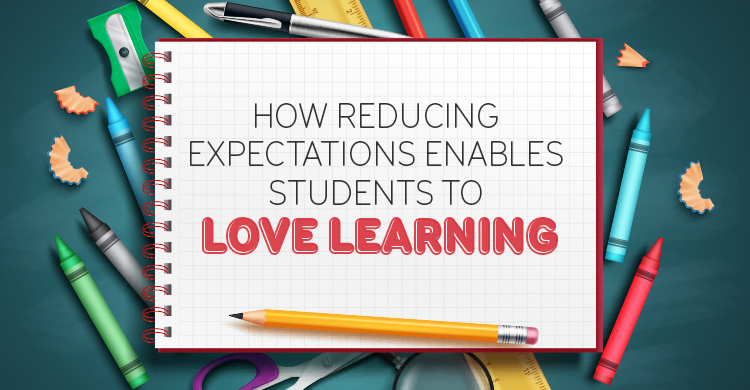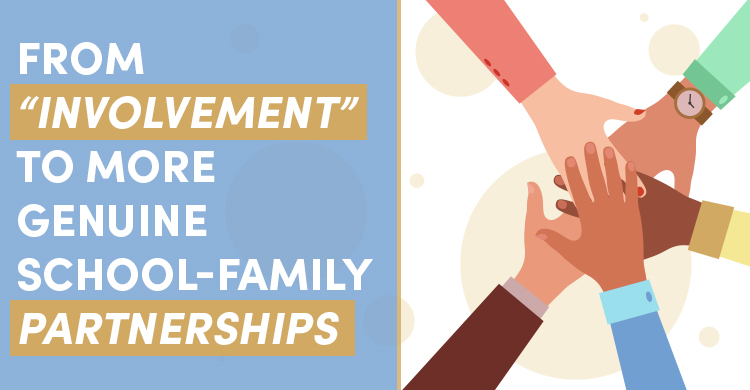As a child in an impoverished, remote Chinese village on the eve of the Cultural Revolution, Yong Zhao’s family gave him a remarkable gift: The absence of expectations for who he should be. He never doubted that his illiterate parents cared for him unconditionally. They didn’t expect him to behave like other children in the village or follow in his father’s footsteps as a farmer and buffalo wrangler.
When a school was built in the village, his father asked Yong if he wanted to attend. It was his choice and his alone. Later, when he took advantage of the rare opportunity to attend a distant middle school that required a 20-mile roundtrip trudge each weekend, his family supported him—as they did later when he qualified for high school and, subsequently, college. At each stage, continuing on the path unfolding before him was his decision.
Studying the high cost of high expectations for young people
Yong’s story, chronicled in our book Improbable Probabilities, raises questions about the commonplace exhortation to hold high expectations for all students. What if, rather than imposing expectations on them, we trusted students to discover—given opportunities, support, and guidance—the paths that best fit their interests, talents, and goals? Such an approach could help them discover their capacity to impact their world.
In Yong’s case, to surmise that his parents were indifferent to his future would be a mistake. He knew they wanted the best for him. But they left it to him to decide what “the best” should be. They enjoyed his accomplishments, but Yong never worried that his worth in his parents’ eyes was contingent on what he accomplished. With each step forward, he discovered that he had the capacity to achieve his goals.
In her recent book, Never Enough: When Achievement Culture Becomes Toxic—and What We Can Do About It, Jennifer Beheny Wallace argues persuasively that achievement culture in the United States has contributed to the alarming decline in youth mental health and well-being. My experience teaching in Greece and China has taught me that the “never enough” culture that Wallace describes is not confined to the US. Parents across the globe, responding, in part, to an ever-more competitive local and international business environment, worry that their children won’t be prepared for the future. Hence, the pressure to succeed, to distinguish themselves from their peers with whom they are competing for scarce resources such as admission to a prestigious university.
Students feel the pressure, too
As a result, many students globally are feeling unparalleled levels of pressure. Data from the World Health Organization (WHO) shows one in seven students worldwide are experiencing mental health challenges. In 2021, a US coalition of prominent organizations focused on child and youth health declared the increase in youth mental health problems a national emergency.
Yet, perhaps the most alarming indicator of unhealthy pressure is the rise in suicide rates. Globally, suicide is now the fourth leading cause of death among teenagers aged 14–19, according to the WHO. One in three middle- and high-school students in Seoul reported considering suicide, identifying academic workloads and worries about their fu
ture as sources of their suicidal ideation. Academic stress is reported as a major factor in 38 percent of suicides among children under 18 in the United Kingdom and 18.7–22.7 percent of suicides among children under age 15 in Turkey.

Modeling the best motivations for students
Wallace reports on data showing that “young people are shifting away from more social values, like caring about community, and moving toward more self-enhancing ones, like pursuing money, fame, and image.” Wallace does not advocate abandoning high expectations. Instead, she urges support for students in developing a sense of self-worth through meaningful, community-oriented activities—not merely individual accomplishments.
Not all types of pressure and stress are created equally. Arguably, a certain level of academic pressure—up to a point—can be productive, motivating students to focus and do their best. Performing well in high-pressure situations can help build resilience and confidence. To Wallace’s point, a sense that one’s life has meaning correlates with resilience.
Yong’s story shows that he was internally motivated to learn and test his mettle in a highly competitive educational system. He felt the pressure to prove to himself he could meet the challenges he chose rather than meeting expectations set by his family and community. The data on youth mental health suggests, however, that we are erring on the side of unhealthy external pressure.
The importance of feeling valued
The way out of this for many students and their families is far from simple. As a parent of a highly competitive high school student told me, she knew that her child taking multiple AP courses was putting unhealthy pressure on her. But what were her options? Her classmates were doing the same and would be competing for admission at the same hyper-selective universities. She believed her daughter would be devastated if she didn’t get into one of these institutions.
To her credit, Wallace offers no easy panacea for the “never enough” epidemic. Rather, she argues that our students, like all of us, crave the sense that they matter and that they can have a meaningful impact on those around them. This search for meaning is rooted in the idea that what we do matters to ourselves and others. Realizing that they matter independently of their academic performance and that they can make a difference in their community provides students with an alternative source for realizing their inherent value and capabilities.
By Bill McDiarmid, Alumni Distinguished Professor of Education, Emeritus, University of North Carolina-Chapel Hill






